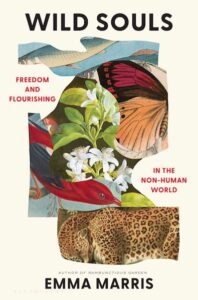 Recently, while reading The Rise of Wolf 8 and The Reign of Wolf 21, Rick McIntyre’s captivating brace of books recounting the beginning and development of Yellowstone’s reintroduced wolf dynasty, I found myself repeatedly wondering about just how wild these wolves truly were. Collared, monitored on the ground and by air, only safe from being murdered by irritated ranchers or ignorant rednecks so long as they remained within the boundaries of the park itself, I couldn’t help but think that this was not actual wildness but a facsimile thereof created by humans in an attempt to still have such creatures around in a world so anthropogenically changed that it is no longer “convenient” for genuinely wild large carnivores – or any non-human creature, for that matter – to live out their lives as they once would have done.
Recently, while reading The Rise of Wolf 8 and The Reign of Wolf 21, Rick McIntyre’s captivating brace of books recounting the beginning and development of Yellowstone’s reintroduced wolf dynasty, I found myself repeatedly wondering about just how wild these wolves truly were. Collared, monitored on the ground and by air, only safe from being murdered by irritated ranchers or ignorant rednecks so long as they remained within the boundaries of the park itself, I couldn’t help but think that this was not actual wildness but a facsimile thereof created by humans in an attempt to still have such creatures around in a world so anthropogenically changed that it is no longer “convenient” for genuinely wild large carnivores – or any non-human creature, for that matter – to live out their lives as they once would have done.
Then, with this question still burning in my mind, a copy of Emma Marris‘ newly published Wild Souls: Freedom and Flourishing in the Non-Human World arrived on my desk as if sent by the hand of the goddess Serendipity herself. Taking up such questions as what it means to be wild, what are the rights of animals introduced into an ecosystem compared to those already there, what steps are morally justifiable to take in the preservation of any given species when such actions may harm other species, and even if any animals are truly wild any longer given how much we humans have altered the world so as better for it to suit our own needs, Ms. Marris leads her readers into some of the most challenging philosophical questions surrounding conservation biology and its practices.
Having begun my reading of Wild Souls, I have already many times found myself setting it gently in my lap and staring of into the middle distance, my mind circling around an observation Ms. Marris has made, or a question she has posed. It is indeed proving itself to be a book over which to linger and think deeply.
Available from:
If you enjoyed reading this, please consider signing up for The Well-read Naturalist's newsletter. You'll receive a helpful list of recently published reviews, short essays, and notes about books in your e-mail inbox once each fortnight.

